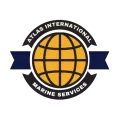
How can industry stakeholders strengthen collaboration and information sharing to improve overall safety, security, and sustainability in the maritime sector?
The maritime sector plays a crucial role in international trade. It is responsible for moving over 80% of global trade, and as such, it is a vital component of the global economy.
However, the maritime sector is not exempt from global challenges such as climate change, geopolitical risks, and cybersecurity threats.
Therefore, industry stakeholders must work together to enhance safety, security, and sustainability in the maritime sector.
Collaboration among Stakeholders
Enhanced collaboration among industry stakeholders is essential to address the multifaceted challenges facing the maritime sector.
The complexity of the maritime ecosystem, which includes shippers, port operators, freight forwarders, and carriers, requires that these stakeholders work together to implement effective strategies.
By working together, industry stakeholders can identify common interests, create shared goals, and establish workable policies to achieve those goals.
Moreover, collaboration can lead to the standardization of processes, the simplification of procedures, and the streamlining of operations.
This can ultimately result in significant cost savings and a reduction in delays, which are costly for both shippers and carriers.
For instance, the implementation of ISO standards for container data exchange has led to enhanced collaboration among stakeholders and a reduction in inefficiencies.
Similarly, the adoption of blockchain technology has enhanced collaboration among stakeholders by improving transparency and reducing the risk of fraudulent activities.
Information Sharing
Information sharing is another critical component of enhancing safety, security, and sustainability in the maritime sector.
The maritime sector’s complex ecosystem requires the sharing of critical information among stakeholders to ensure that operations are running seamlessly.
Consequently, sharing of data related to cargo, vessel movements, weather conditions, and other critical factors is necessary to optimize operational efficiency.
Furthermore, information sharing is essential to enhance cybersecurity in the maritime sector.
The shipping industry is increasingly becoming a target of cyber-attacks, which can have severe consequences for global trade.
Sharing information cybersecurity risks among stakeholders is necessary to identify and mitigate cybersecurity risk factors.
For Safety
Collaboration and information sharing can enhance safety in the maritime sector in several ways.
Safety in the maritime industry is paramount given the significant potential loss of human life and environmental damage due to maritime accidents.
Collaboration among stakeholders can lead to the establishment of industry-wide safety standards and regulations, the training of crew members, and the implementation of safety protocols.
Moreover, the sharing of information can ensure that all stakeholders, including shippers and carriers, are aware of weather conditions, potential hazards, and other critical factors that can impact the safety of maritime operations.
For instance, providing early warning of an approaching storm or other natural disasters can help shippers and carriers take proactive measures to protect their cargo and crew.

For Security
Enhancing security in the maritime sector is crucial to ensure the safe passage of cargo and people.
Collaboration among industry stakeholders can help to prevent piracy, smuggling, and other criminal activities that pose a threat to the maritime ecosystem.
Sharing information about potential risks and implementing effective security protocols can help to deter criminal activities.
For example, sharing information about suspicious vessels or cargo can help to identify potential threats before they escalate.
Furthermore, collaboration and information sharing can also enhance maritime border security.
The border between countries is often porous, making it challenging to determine the origin or final destination of cargo or people.
Sharing information about cargo and vessel movements can help to identify suspicious activities and prevent the smuggling of illicit goods and people.
For Sustainability
The maritime sector also has a significant impact on the environment.
The sector is responsible for a significant percentage of global greenhouse gas emissions, which contributes to climate change.
Collaboration and information sharing among industry stakeholders can help to reduce the industry’s carbon footprint and enhance sustainability.
Stakeholders can work together to develop and implement sustainable practices, such as energy-efficient vessels and port infrastructure.
By sharing information about best practices, stakeholders can identify areas for improvement and minimize the environmental impact of the maritime sector.
Moreover, collaboration and information sharing can also enhance the circular economy in the maritime sector.
The circular economy is a regenerative economic model that aims to minimize waste and maximize the use of resources.
By collaborating and sharing information about waste reduction and recycling initiatives, stakeholders can help to reduce the environmental impact of the maritime sector.
Conclusion
To enhance safety, security, and sustainability in the maritime sector, collaboration and information sharing among industry stakeholders is vital.
Collaboration can lead to the standardization of processes, the simplification of procedures, and the streamlining of operations.
Information sharing is essential to optimize operational efficiency, enhance cybersecurity, and enable quick responses to safety and security concerns.
The complex nature of the maritime ecosystem requires a coordinated effort from stakeholders to ensure that the sector operates safely, securely, and sustainably.
By working together, stakeholders can identify common interests, create shared goals, and implement workable policies to achieve those goals.
Ready to partner with a trusted and experienced provider for your marine services needs? Contact us today.
